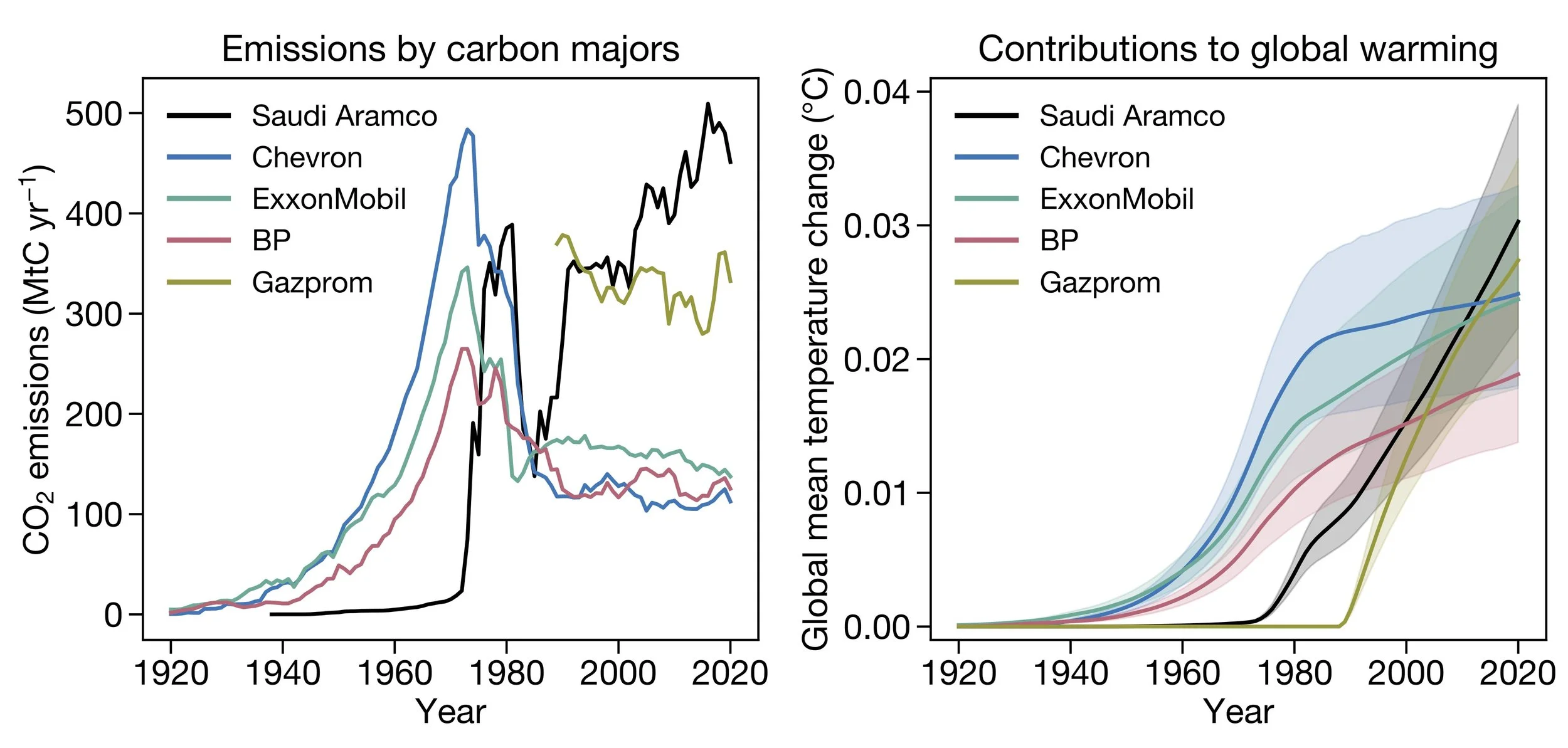Economic and health impacts of climate change
The impacts of climate change could imperil the health and well-being of millions of people around the world, but the magnitude, persistence, and distribution of these impacts remain unclear. My most long-running research theme uses econometric regression techniques and climate model simulations to better understand the effects of extreme climate events on human health and economic output in a warming world. For example, we’ve shown substantial economic growth impacts of heat waves, tropical cyclones, and El Niño events. In other work, we’ve used machine learning to reproduce historical extreme heat events in Europe at present and future global temperatures, projecting staggering death tolls from these hypothetical—but plausible—heat waves.
Accountability for climate impacts
Who bears responsibility for the impacts of climate change? This question has major implications for debates over loss and damage funding as well as climate change litigation. My research combines physical climate models and empirical impact models to assess the responsibility that major emitters, such as countries and fossil fuel firms, bear for the climate crisis. In recent work, we showed that fossil fuel firms such as ExxonMobil and Chevron can be linked to substantial economic losses from extreme heat around the world. In a 2022 paper, we quantified the responsibility of individual countries to economic losses suffered in every other country.
Attribution of climate extremes and impacts
Climate change is not merely a future threat; it is already causing changes in extreme weather and their associated impacts. My work seeks to understand historical changes in both of these factors and link them to human-caused warming. For example, in some of my early work, we applied single-event attribution techniques to episodes of poor air quality in Beijing. On the impacts side, we have used econometrics and event attribution to calculate that anthropogenic warming led to more than 6,000 deaths in France during the devastating August 2003 heat wave.
get in touch if you’re interested in working together on these or related topics!


